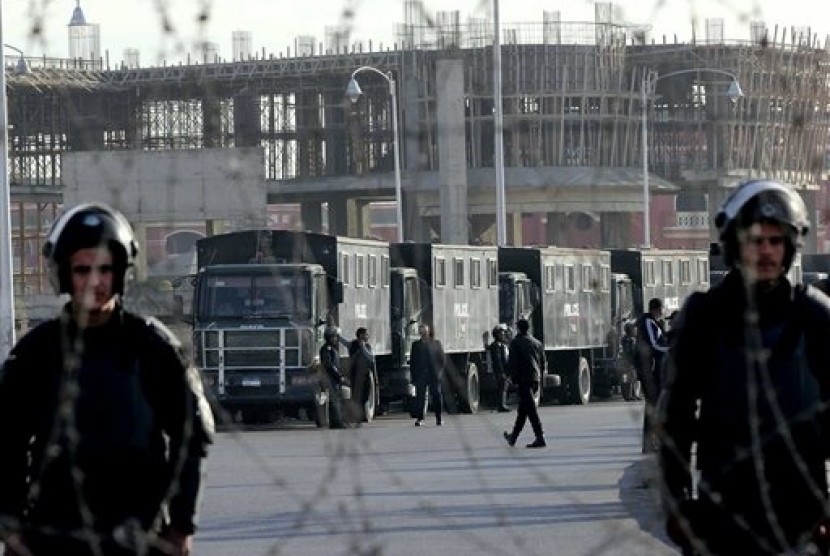REPUBLIKA.CO.ID, CAIRO - The trial of Egypt's elected president on charges of inciting murder was adjourned on Wednesday until next month, after bad weather prevented a helicopter flight from bringing Mohammed Mursi to court.
The helicopter, which was to fly Mursi from a prison near the Mediterranean city of Alexandria to the court in eastern Cairo, could not take off because of fog, security officials said, speaking on condition of anonymity because they were not authorized to talk to media. Judge Ahmed Sabry Youssef adjourned the proceedings until Feb. 1.
Mursi and 14 other Muslim Brotherhood members face charges of inciting the killing of protesters outside a Cairo presidential palace in December 2012 — when he was still in office and when at least 10 people were killed and hundreds wounded. Wednesday's hearing was to be Mursi's second appearance in court since his ouster in a popularly-backed coup on July 3. Seven of Mursi's co-defendants are being tried in the case in absentia, while the rest are being held at a Cairo jail.
It's one of three trials that Mursi faces. Charges in the other two cases have to do with Mursi's jailbreak in 2011 — during an uprising that ousted his predecessor, autocrat Hosni Mubarak — and allegations that he conspired with militant groups. Charges in all three carry the death penalty.
Wednesday's adjournment came less than a week before Egyptians are scheduled to start voting in a nationwide referendum on a new constitution that, if adopted by a simple majority, will replace an Islamist-tilted one passed under Mursi. About 680,000 Egyptians living abroad started voting on the new charter on Wednesday.
Defense lawyers claimed Wednesday's adjournment was linked to the Jan. 14-15 referendum on the new constitution and that the judge's decision was politically motivated.
"The decision was inspired by the political circumstances," said one of the lawyers, Osama el-Helou.
A comfortable "yes" majority in the referendum along with a significant turnout would give the military-backed government considerable legitimacy as it presses on with a roadmap for Egypt's transition, announced by military chief Gen. Abdel-Fattah el-Sissi the day he removed Morsi.
After the referendum, next in line are elections for a new parliament and a president, but no date has been set for either. There are growing signs that a presidential election will be held first, possibly as early as in the spring. El-Sissi, whose popularity has soared since the coup, has not ruled out a presidential run.


